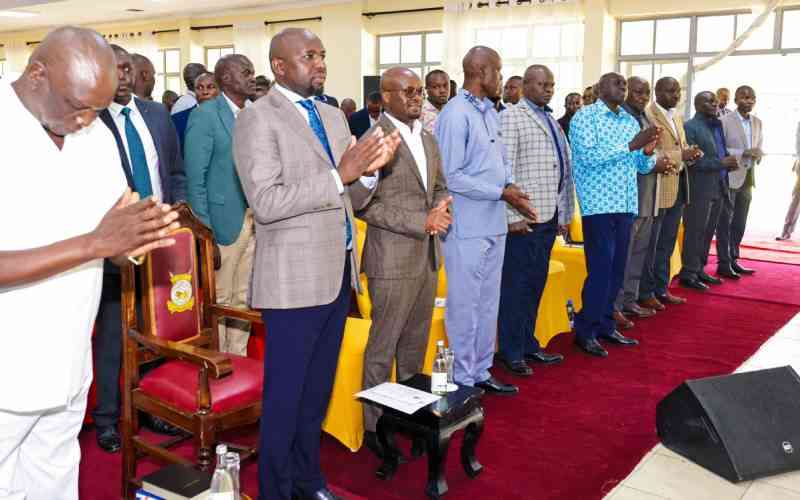By Kethi D Kilonzo
finclegal@gmail.com
All land in Kenya belongs to the people of Kenya collectively as a nation, as communities and as individuals.
Chapter 5 of the Constitution is dedicated to and deals only with matters concerning the management of land. It lays out the principles of land policy, classifies land into three categories, regulates land holding by persons who are not citizens of Kenya, provides for legislation on land, and creates the National Land Commission. The National Land Commission is not another run-of-the-mill Government commission. It is created by the Constitution. Out of ten commissions mentioned by name under Article 248 of the Constitution, it is the second. The Kenya National Human Rights and Equality Commission is first on the list. The NLC is given the same constitutional standing as the Judicial Service Commission, the Independent Electoral and Boundaries Commission, and the Commission on Revenue Allocation among others. The principle objectives of all constitutional commissions are set out under Article 249 of the Constitution. They have the power and authority while exercising their mandate to protect the sovereignty of the people of Kenya, to promote constitutionalism and to ensure that those who work under or with them observe the national values and principles.
Article 67 of the Constitution gives the NLC, and no one else, the mandate to manage public land on behalf of the national and county governments. In executing this mandate the NLC is not answerable to anyone nor is it subject to any authority. It is only answerable to the Constitution and the law. What does management mean? In Latin, “manu”, it means leading by the hand. In French, “management”, it means the act of conducting and giving direction. Management, like machines, materials, labour and capital, is a factor of production. It consists of the interlocking functions of creating policy, organising, planning, controlling, and directing resources to achieve the objectives of the policy. It is management that has the power and the responsibility to make decisions and oversee an enterprise.
In Kenya, the Constitution gives managerial powers over land to the NLC. It has the exclusive power to oversee and monitor land use planning. It has the authority to recommend a national land policy to the national government. It is clothed with the mandate to advise the national government on a comprehensive programme for the registration of titles in land throughout Kenya. The Constitution gives it the first say on all matters concerning land. Policy, management, use, taxation and registration of titles. Members of the National Land Commission have security of tenure. They will all serve for a non-renewable term of six years. They can only be removed from office through an elaborate procedure and for wrongdoing. They do not hold office at the pleasure of any person. Nor is their term of office pegged on the General Election cycle. This security of tenure underscores the gravitas of their responsibility. The Constitution has given them the authority and power and the security to perform their functions conscientiously, effectively and without fear or favour.
The NLC has a constitutional obligation to ensure that the state organs and state officers they deal with observe the national values and principles of the Constitution. Under Article 10 of the Constitution, one of our national values and principles is the rule of law. Put simply, it is the responsibility of every commissioner to draw the attention of every state officer and state organ they deal with to those Articles of the Constitution that clothe their Commission with its authority, mandate, independence and security of tenure.
 The Standard Group Plc is a
multi-media organization with investments in media platforms spanning newspaper
print operations, television, radio broadcasting, digital and online services. The
Standard Group is recognized as a leading multi-media house in Kenya with a key
influence in matters of national and international interest.
The Standard Group Plc is a
multi-media organization with investments in media platforms spanning newspaper
print operations, television, radio broadcasting, digital and online services. The
Standard Group is recognized as a leading multi-media house in Kenya with a key
influence in matters of national and international interest.
 The Standard Group Plc is a
multi-media organization with investments in media platforms spanning newspaper
print operations, television, radio broadcasting, digital and online services. The
Standard Group is recognized as a leading multi-media house in Kenya with a key
influence in matters of national and international interest.
The Standard Group Plc is a
multi-media organization with investments in media platforms spanning newspaper
print operations, television, radio broadcasting, digital and online services. The
Standard Group is recognized as a leading multi-media house in Kenya with a key
influence in matters of national and international interest.





